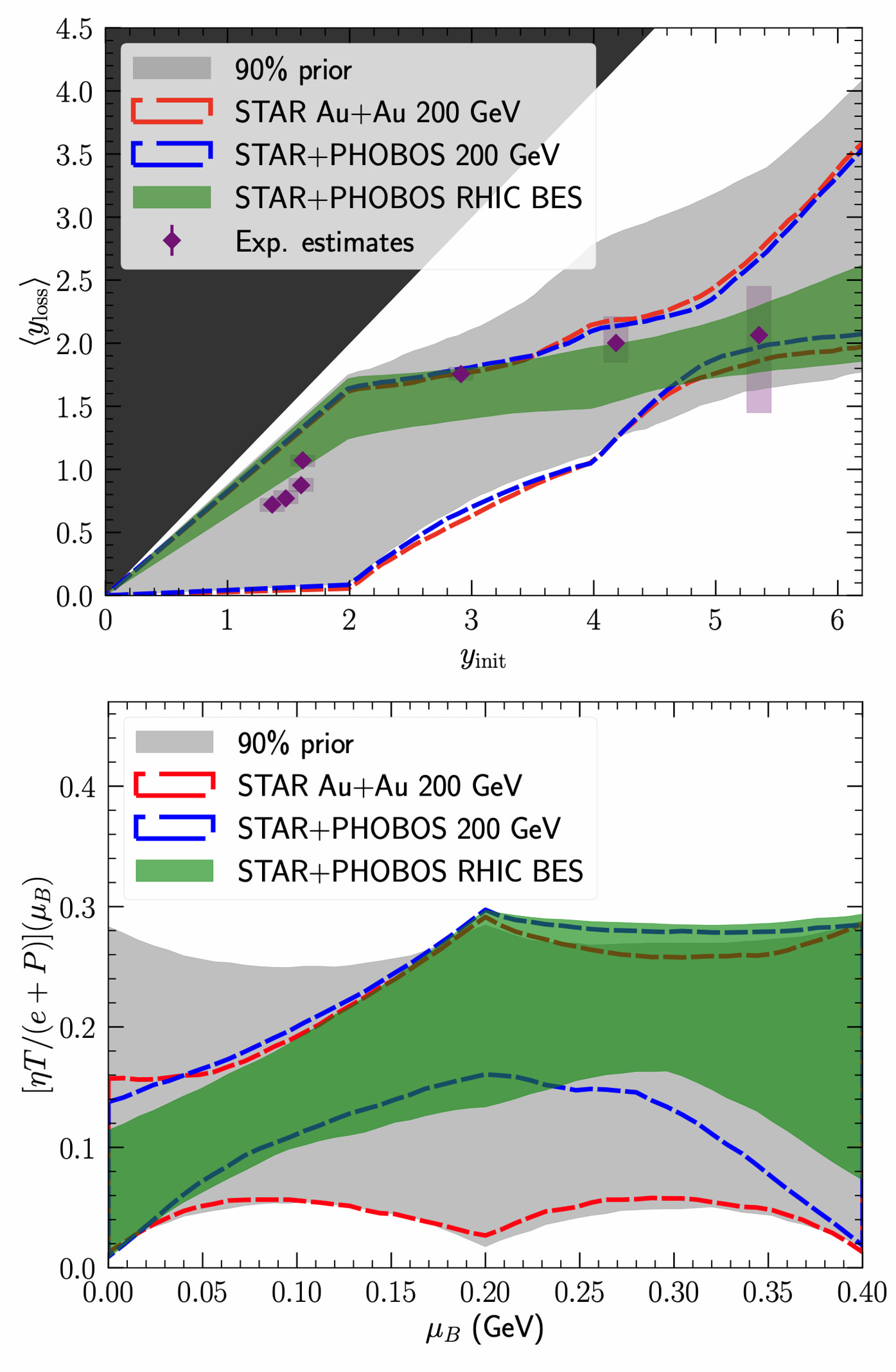Physics researchers make breakthrough in the simulation of relativistic heavy-ion collision dynamics
Physics Professor Chun Shen's group has performed the first Bayesian inference study of the (3+1)D dynamics of relativistic heavy-ion collisions in the RHIC Beam Energy Scan (BES) program.

The results obtained robust constraints on initial state nuclear stopping and the baryon chemical potential-dependent shear viscosity of the produced quantum chromodynamic (QCD) matter. This work was recently published in Physics Review Letters.
Before this work, most Bayesian inference studies in heavy-ion physics were restricted to (2+1)D simulations because of the limitations in computing resources. Professor Shen's group developed the state-of-the-art theoretical framework at Wayne State University, overcoming the computational challenges and enabling the first large-scale (3+1)D simulations on the Open Science Grid (OSG). These full (3+1)D simulations are essential to constrain the properties of hot and baryon-rich nuclear matter. Shen's group made possible the quantitative comparison with the RHIC BES measurements.
In the near future, Shen's group will perform a more systematic analysis with the simulation data and further improve the statistical tools to derive more robust and quantitative constraints on the properties of hot and dense nuclear matter created in relativistic heavy-ion collisions.